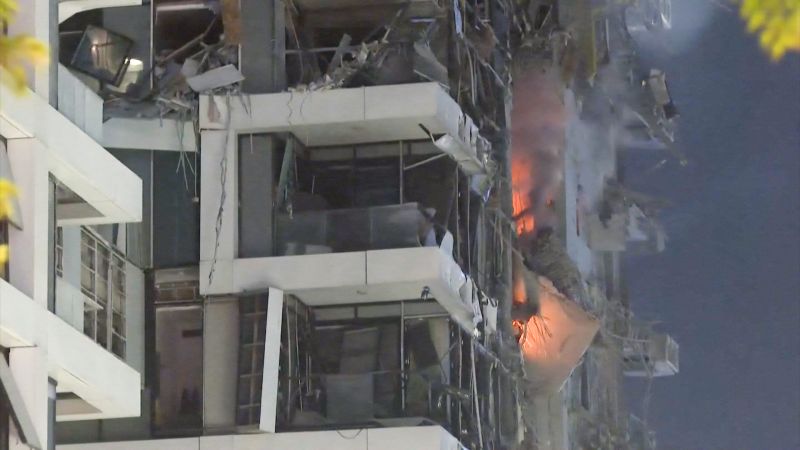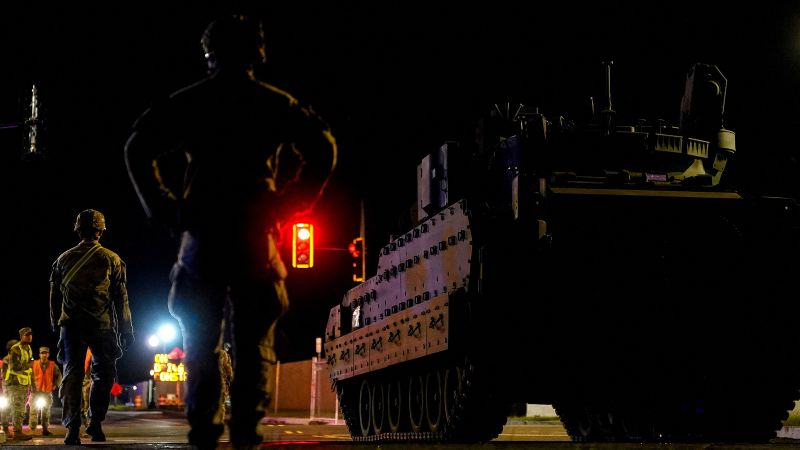Iran-Israel Conflict: Understanding The Rationale For Israel's Actions

Welcome to your ultimate source for breaking news, trending updates, and in-depth stories from around the world. Whether it's politics, technology, entertainment, sports, or lifestyle, we bring you real-time updates that keep you informed and ahead of the curve.
Our team works tirelessly to ensure you never miss a moment. From the latest developments in global events to the most talked-about topics on social media, our news platform is designed to deliver accurate and timely information, all in one place.
Stay in the know and join thousands of readers who trust us for reliable, up-to-date content. Explore our expertly curated articles and dive deeper into the stories that matter to you. Visit Best Website now and be part of the conversation. Don't miss out on the headlines that shape our world!
Table of Contents
Iran-Israel Conflict: Understanding the Rationale for Israel's Actions
The escalating tensions between Iran and Israel have captivated global attention, prompting questions about the underlying motivations driving Israel's actions in the region. This complex conflict, rooted in decades of geopolitical rivalry, involves a tangled web of security concerns, regional power struggles, and ideological differences. Understanding Israel's perspective requires examining the key factors shaping its strategic decisions.
Israel's Security Concerns: The Existential Threat Narrative
At the heart of Israel's actions lies a deeply held belief in an existential threat posed by Iran. This perception isn't solely based on rhetoric; it's fueled by Iran's declared aim to destroy Israel, its support for militant groups like Hezbollah and Hamas, and its ongoing nuclear program. Israel views Iran's nuclear ambitions as a direct threat to its survival, arguing that a nuclear-armed Iran would dramatically alter the regional power balance and embolden its proxies to launch devastating attacks.
This fear is amplified by Iran's expanding military capabilities, its influence across the region, and its increasing willingness to engage in direct and proxy conflicts. Israel's intelligence agencies constantly monitor Iran's activities, leading to preemptive strikes aimed at disrupting what it considers imminent threats.
Beyond the Nuclear Program: The Proxy War and Regional Influence
The Israeli perspective extends beyond Iran's nuclear program. Israel sees Iran's support for various militant groups throughout the region as a direct challenge to its security. Hezbollah in Lebanon, Hamas in Gaza, and other Iranian-backed militias are perceived as tools used by Tehran to destabilize the region and exert influence, creating a network of proxies capable of launching attacks against Israeli targets. Israel's military operations in Syria, for example, are often framed as efforts to prevent Iran from establishing a permanent military foothold and further entrenching its proxies.
The Role of Intelligence and Preemptive Strikes
Israel's actions are often characterized by preemptive strikes, a strategy justified by the perceived immediacy of the threats. This approach, however, is controversial. Critics argue that such strikes can escalate tensions and lead to unintended consequences. Israel maintains that its intelligence gathering capabilities are superior and that its preemptive actions are necessary to prevent larger-scale attacks. The effectiveness and proportionality of these strikes remain a subject of ongoing debate.
International Implications and the Search for a Solution
The ongoing conflict has significant international implications, impacting regional stability and global security. The involvement of various international actors, including the United States, Russia, and European powers, further complicates the situation. Finding a lasting solution requires addressing the root causes of the conflict, including Iran's nuclear program, its regional influence, and Israel's security concerns. However, achieving a peaceful resolution remains a significant challenge, demanding sustained diplomatic efforts and a willingness from all parties to engage in constructive dialogue. [Link to a relevant UN report on the conflict].
Conclusion: A Complex and Evolving Situation
The Iran-Israel conflict is a complex and multi-layered issue with no easy answers. Understanding Israel's actions requires acknowledging its deeply held security concerns and its assessment of the threats posed by Iran. While Israel's actions are often controversial, understanding the rationale behind them is crucial for navigating this volatile geopolitical landscape. Further research into the historical context and the perspectives of all involved parties is essential to fostering a more nuanced understanding of this critical issue. [Link to a reputable think tank analyzing the conflict].

Thank you for visiting our website, your trusted source for the latest updates and in-depth coverage on Iran-Israel Conflict: Understanding The Rationale For Israel's Actions. We're committed to keeping you informed with timely and accurate information to meet your curiosity and needs.
If you have any questions, suggestions, or feedback, we'd love to hear from you. Your insights are valuable to us and help us improve to serve you better. Feel free to reach out through our contact page.
Don't forget to bookmark our website and check back regularly for the latest headlines and trending topics. See you next time, and thank you for being part of our growing community!
Featured Posts
-
 Anger And Resistance Examining The No Kings Movement Sweeping The Nation
Jun 16, 2025
Anger And Resistance Examining The No Kings Movement Sweeping The Nation
Jun 16, 2025 -
 Autodromo Hermanos Rodriguez Onboard Lap With Nascars Chase Elliott
Jun 16, 2025
Autodromo Hermanos Rodriguez Onboard Lap With Nascars Chase Elliott
Jun 16, 2025 -
 Who To Watch Biggest Names At The Fifa Club World Cup 2025
Jun 16, 2025
Who To Watch Biggest Names At The Fifa Club World Cup 2025
Jun 16, 2025 -
 The Enduring Appeal Of Guardians Of The Galaxy Analyzing Its Cultural Resonance
Jun 16, 2025
The Enduring Appeal Of Guardians Of The Galaxy Analyzing Its Cultural Resonance
Jun 16, 2025 -
 Nascar Mexico Race Hendrick Motorsports Driver Performance And Average Speeds
Jun 16, 2025
Nascar Mexico Race Hendrick Motorsports Driver Performance And Average Speeds
Jun 16, 2025
Latest Posts
-
 One Year Until The World Cup Is The Usmnt On Track
Jun 16, 2025
One Year Until The World Cup Is The Usmnt On Track
Jun 16, 2025 -
 Nwsl Championship Game A Preview And Prediction
Jun 16, 2025
Nwsl Championship Game A Preview And Prediction
Jun 16, 2025 -
 Mais Que Futebol Samu O Talento Do Porto Que Superou A Adversidade
Jun 16, 2025
Mais Que Futebol Samu O Talento Do Porto Que Superou A Adversidade
Jun 16, 2025 -
 Apolitical Military At Risk Armys 250th Birthday Highlights Concerns
Jun 16, 2025
Apolitical Military At Risk Armys 250th Birthday Highlights Concerns
Jun 16, 2025 -
 Analyzing The Emmy Ballot Predicting The Winners Of The 2024 Ceremony
Jun 16, 2025
Analyzing The Emmy Ballot Predicting The Winners Of The 2024 Ceremony
Jun 16, 2025
